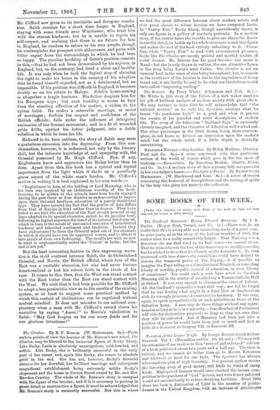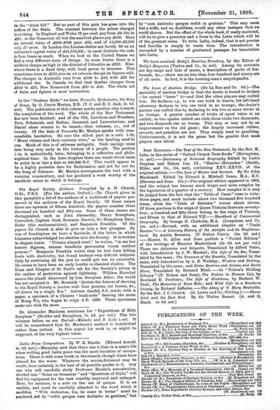Taxation of the Liquor Traffic. By Joseph Rowntree and Arthur
Sherwell. Vol. I. (Macmillan and Co. 10s. 6d. net.)—We may call the attention of our readers to this "revised and enlarged" edition of a book published about two years and a half ago. The time is critical, and we cannot do better than go to Messrs. Rowntree and Sherwell at least for our facts. The Spectator has always advocated the plan of high licensing. Our present system means the throwing away of good money, and leads to waste of many kinds. High-priced licenses would have checked the insane com- petition in the purchase of " tied " houses, and were it now enforced would act automatically to reduce drinking facilities. Since 1880 there has been a diminution of 7,234 in the number of public- houses in the United Kingdom, with an increase of £20,000,000 in the "drink bill." But no part of this gain has gone into the coffers of the State. The contrast between the prices charged is striking. In England and Wales 75 per cent, pay from £4 10s. to £25; in the Transvaal all but the smallest places pay £100. Here an annual value of xsoo—tioo pays £55, and of £4,500-.85,000 only £5 more. In London the License-duties are barely .50 on an estimated capital value of £41,515,600; in rural districts the rate is four times as much. When we look at the United States we find a very different state of things. In some States there is a uniform charge, as high in the district of Columbia as £325. Else- where there is a fixed duty, with local power to increase. This sometimes rises to £525 plus an ad valorem charge on liquors sold. The charges in Australia vary from £100 to £10, with £20 for additional bar. In Canada we find that Quebec charges from £310 to £25, New Brunswick from £60 to £10. The whole set of facts and figures is most instructive.

































































 Previous page
Previous page